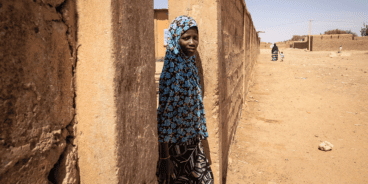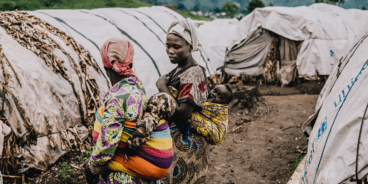
Atrocity Alert No. 46: Iraq, Syria and the Democratic Republic of the Congo
Atrocity Alert is a weekly publication by the Global Centre for the Responsibility to Protect highlighting and updating situations where populations are at risk of, or are enduring, mass atrocity crimes.
Iraq
The UN World Health Organization (WHO) reported that between 1 and 3 March, twelve patients, including women and children, were treated for possible exposure to chemical weapons in Mosul, Iraq. According to Iraqi officials, the attack was carried out by the Islamic State of Iraq and the Levant (ISIL) within the eastern sector of Mosul, which was retaken by the Iraqi Security Forces during January.
This attack took place the day after the UN Security Council failed to adopt a draft resolution that would have held both ISIL and the Syrian government accountable for the use of chemical weapons in Syria. Evidence of four previous chemical weapons attacks by the Syrian government and ISIL was documented by the impartial UN-OPCW Joint Investigative Mechanism and reported directly to the UN Security Council. During September and October 2016 ISIL forces also launched at least three chemical attacks on the town of Qayyarah, Iraq.
The use of chemical weapons is a war crime. The UN Security Council, with Iraqi government support, should immediately establish an international investigative mechanism to collect evidence of atrocity crimes perpetrated by ISIL in Iraq.
Syria
The latest report of the UN Commission of Inquiry for Syria has determined that Syrian government forces deliberately attacked and destroyed an aid convoy on 19 September 2016, killing fifteen humanitarian workers. The report found that the Syrian Air Force initially dropped barrel bombs from helicopters on the aid convoy, then fired rockets from fighter jets. The convoy had been authorized by the Syrian government to carry out its delivery and its coordinates were known to the authorities.
The report, which was made public on 1 March, went much further in its account of the aid convoy attack than the findings of a UN board of inquiry set up last year to investigate the incident. The summary of those findings, presented to the UN Security Council in December, concluded that the convoy had been bombed from the air but did not specifically identify the attackers.
Deliberately attacking and killing humanitarian workers is a war crime. No one has been held accountable for the attack.
Democratic Republic of the Congo
On 27 February the UN Joint Human Rights Office (UNJHRO) in the Democratic Republic of the Congo released a report on human rights violations that occurred during political protests between 15 and 31 December 2016. The report asserts that defence and security forces, including soldiers from the Republican Guard and Military Police, used disproportionate and excessive force against civilians. UNJHRO documented the killing of 40 civilians, including 5 women and 2 children, and the wounding of 147 people.
The latest UNJHRO report follows similar allegations of disproportionate force used against protesters in Kinshasa during September 2016.
The DRC’s armed forces (FARDC) have also been implicated in summary executions of alleged militia members in eastern DRC. Following the public release of a video showing FARDC members shooting men and women in Muenza Nsapu village during February, the UN High Commissioner for Human Rights stated, “it is time to stop a blunt military response that does nothing to tackle the root causes of the conflict between the government and local militias, but instead targets civilians on the basis of their presumed links to the militias.” The government must hold security forces who perpetrate grave crimes against civilians accountable.
Related Publications


